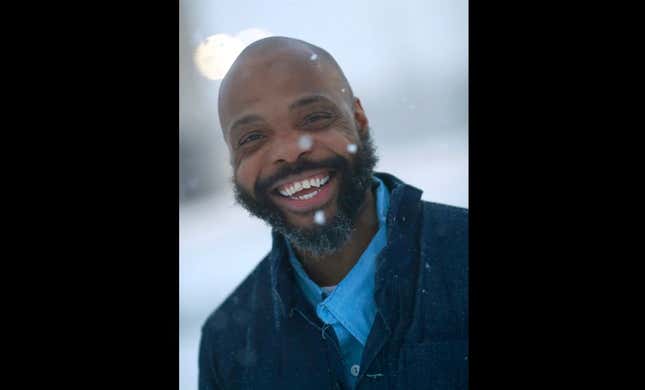
Listen: Stories about Black men spending years and even decades behind bars for crimes they didn’t commit are never stories you want to hear. But there are certain stories where the degree of racism, injustice and cruel behavior on the part of law enforcement and the criminal justice system is so inconceivably egregious that even the most desensitized of us who are well-exposed to American racism can’t help but be shocked.
On Wednesday, 45-year-old Termaine Joseph Hicks was exonerated of rape after spending 19 years in a Philadelphia prison. But Hicks wasn’t just falsely imprisoned. His only “crime” was attempting to help a rape victim, and for his efforts, he was shot three times in the back by police officers who then charged him with the rape and told blatant lies that ensured his conviction.
From the Philadelphia Inquirer:
It was before dawn on Nov. 27, 2001, and Termaine Joseph Hicks was at the wrong place at precisely the wrong time.
A woman had been pistol-whipped, dragged into an alleyway behind what was then St. Agnes Hospital in South Philadelphia, and raped — until the rapist was startled and fled the scene. Hicks heard her screams and rushed to help. But, seconds later, police officers arrived, took him for the rapist and shot him three times. Hicks survived, but was charged with the rape and sentenced to 12½ to 25 years in prison.
On Wednesday, after 19 years’ incarceration, Hicks, 45, was, at last, exonerated.
The Philadelphia District Attorney’s Conviction Integrity Unit agreed with Hicks and his lawyers, civil-rights attorney Susan Lin, and the Innocence Project, that the case was built on lies — possibly to cover up the unjustified shooting — that were contradicted by newly analyzed and compelling forensic evidence.
Keep in mind that it wasn’t new evidence that exonerated Hicks; evidence that was available nearly 20 years ago was reviewed after he spent 19 years of his life in a prison cell—during which he was denied parole multiple times because he wouldn’t admit to guilt, according to his attorneys.
According to the Inquirer, Philadelphia police officer Martin Vinson reported that he shot Hicks in the chest or stomach as Hicks was pulling a gun from his pocket and lunging toward him. Hicks said the officer shot him in the back as he was reaching into his pocket for his phone to call 911. Forensic evidence of Hicks’ medical records and a new review of his clothing showed that only one man was telling the truth, and it wasn’t the cop. The analysis of Hicks’ clothes showed bullet holes in the back of his shirt but not the front.
Innocence Project attorney Vanessa Potkin said that there was also evidence that police planted a gun they said they found on Hicks, noting that the gun was smeared with blood but Hicks’ coat pocket had no blood at all.
“He has always maintained that he arrived at the scene when he attempted to help the victim,” Potkin said, the Inquirer reports. “He had his hand in his pocket because he was going to attempt to call the police when they arrived and shot him in the back. Police claimed that Mr. Hicks had a gun on him as part of their effort to cover up the circumstances of the shooting, but the weapon that was attributed to Mr. Hicks was registered to an active Philadelphia police officer.”
According to a 2002 report by the South Philly Review, Vinson and his partner at the time, Sgt. Dennis Zungolo said they found Hicks standing over the victim—who hasn’t been identified and wasn’t able to identify her actual attacker—with his pants down.
No real explanation has been reported as to how the hell Hicks was convicted with so much evidence pointing towards his innocence. Philadelphia Common Pleas Court Judge Tracy Brandeis-Roman offered him a “bittersweet congratulations” when she vacated his sentence and lamented “the pain and the trauma of the victim, and then more pain in realizing that the wrong person was convicted.”
What’s worse is that the officers involved in the shooting and false arrest are still on the force and there’s no telling if they’ll face charges or any other disciplinary action for their alleged malfeasance.
More from the Inquirer:
Vinson and Zungolo remain employed by the department. In 2016, the city paid $15,000 to settle a civil-rights lawsuit naming Vinson as one of two officers who dragged a taxi driver falsely accused of stealing a cell phone out of his cab, assaulted him, and told him if he did not like it, he could “go back to his country.”
The Police Advisory Commission’s executive director, Anthony Erace, said he was not familiar with Hicks’ case but would seek a review. “When you have a circumstance where at a minimum misconduct is discovered, and at a maximum potential criminal behavior is possible, it’s got to be examined.”
Hicks, whose 24-year-old son was 5 at the time of his arrest, met his 2-year-old grandson for the first time after his release. He wrote and directed 12 plays in prison and plans to keep writing now that he’s free.
“I feel 100 pounds lighter,” he said after his release, the Inquirer reports. “It’s unfortunate and sad that it took how long it took for me to clear my name. I’ve been saying the same thing since day one. The things that are promised to citizens should be delivered: a fair trial, and a fair look at what’s being presented.”

